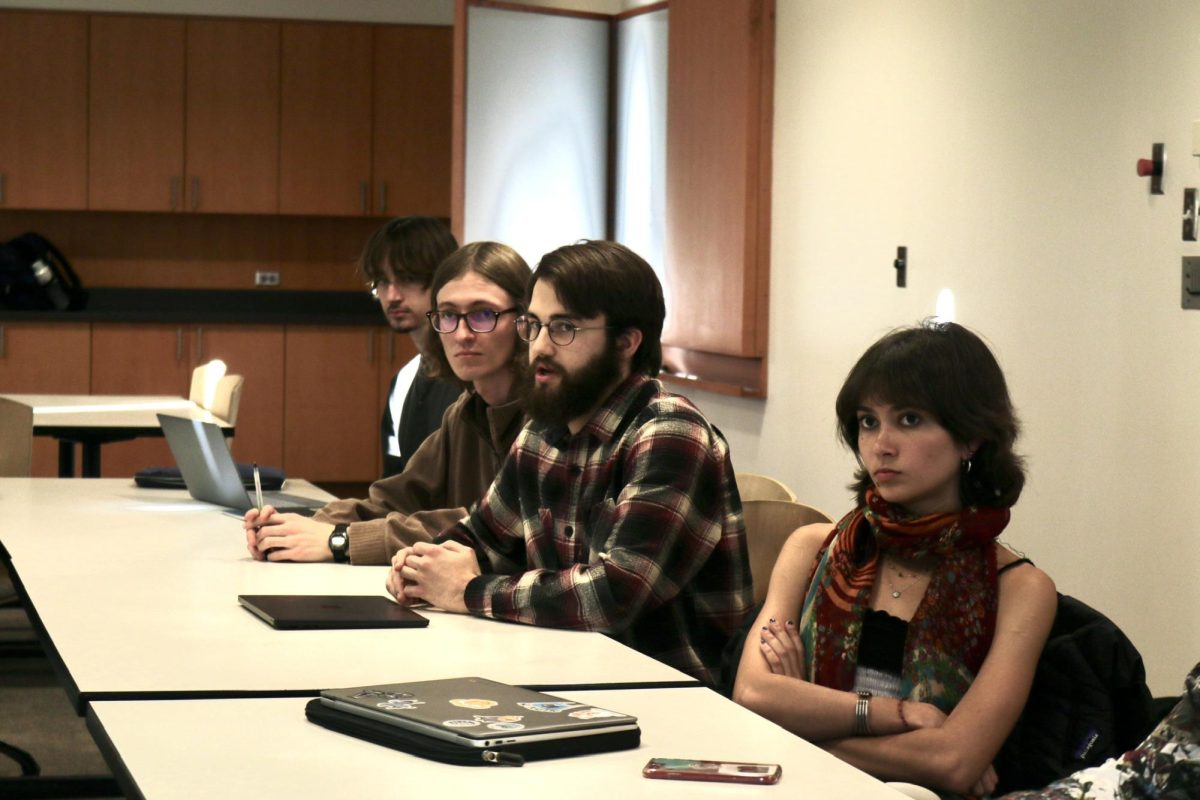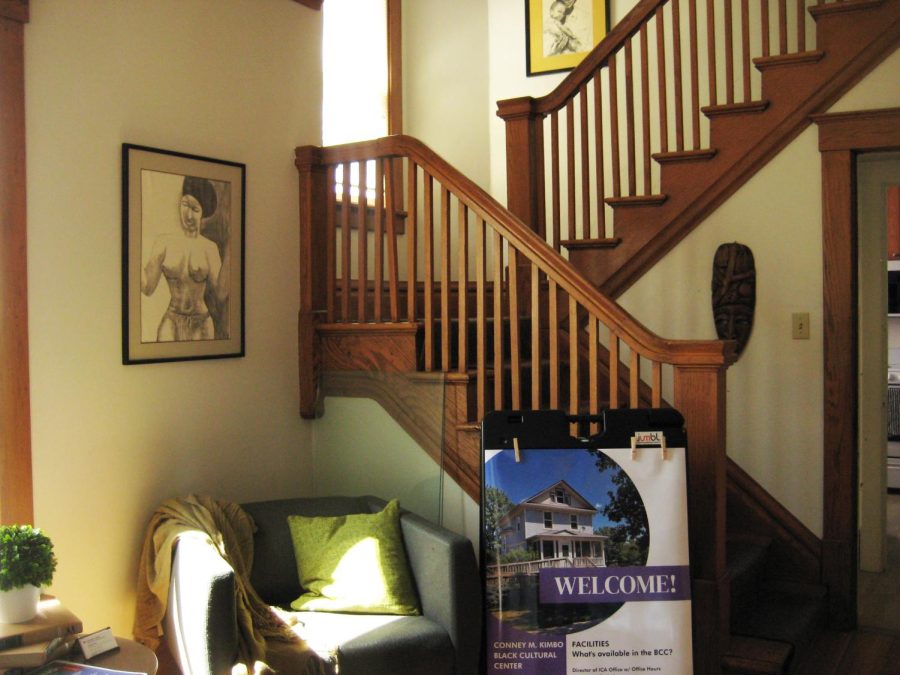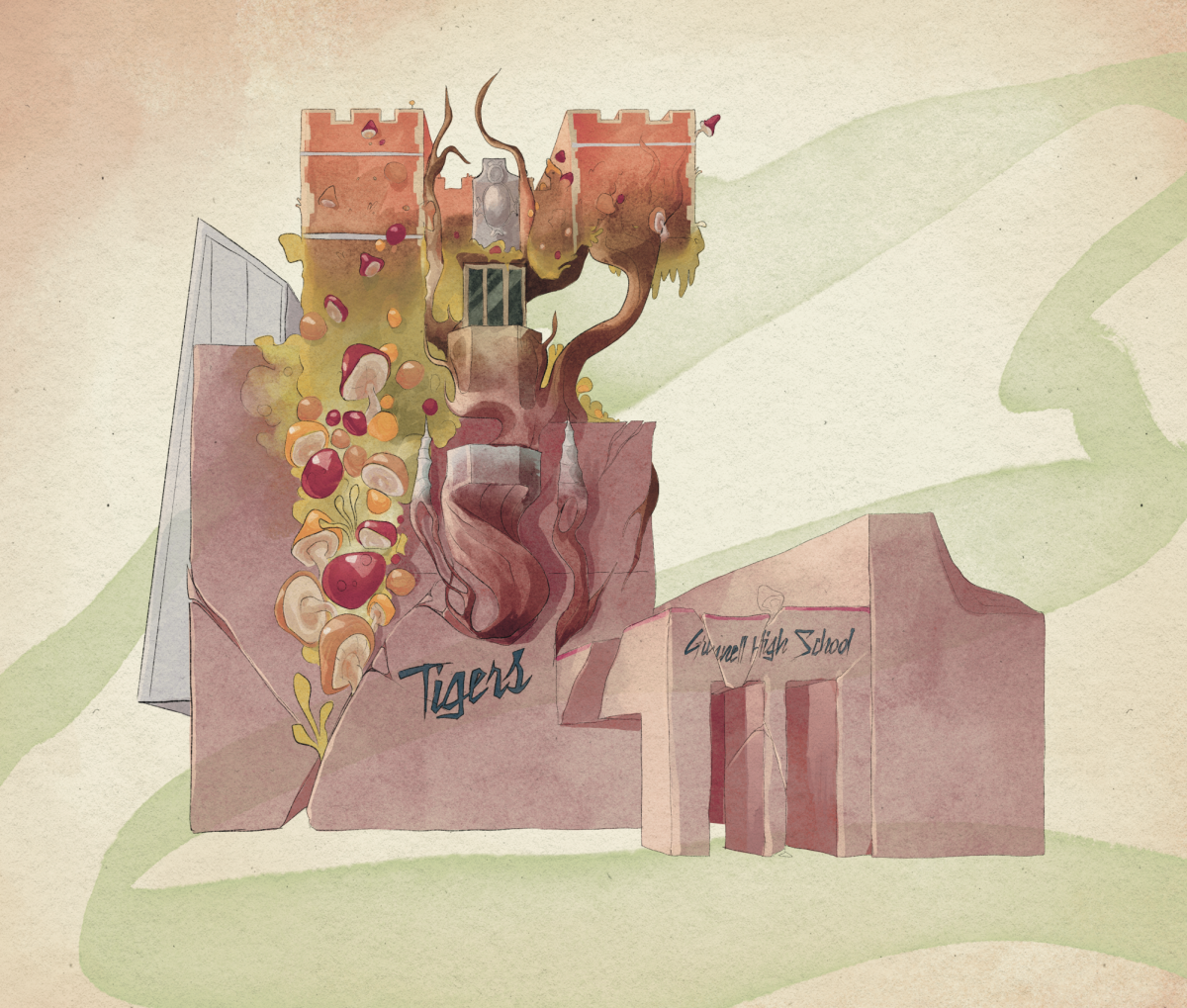Tanner Alger `25 and Ani Ford `27, who both grew up in Grinnell and attended Grinnell High School, said that the sense of community between the town and College is far from meeting its full potential. Yet through intentional engagement with the town, Alger and Ford said that students can play a significant role in helping reach that potential.
“A lot of what’s happening is students coming here, taking what they can from the place, and getting out,” said Alger. “If you solely interact with College-affiliated people, that’s where a lot of the division with the town comes from.”
Alger says that he regularly hears students complain about going to college in a small town, even though they have not attempted to become involved in the community. “I think it’s pretty selfish to go to a place and not see what you can do to help the local individuals,” said Alger. “There’s not much you can do to immediately change the place. You can only change your perspective.”
Alger and Ford both said that finding communal spaces is a promising first step. “If you’ve never been to Saints Rest at six in the morning, do it,” said Alger. “It’s often farmers and laborers who will happily talk to you about everyday things if you express interest.”
According to Ford, simple conversations can begin to create connections between students and local residents.
“This is a friendly community where you can get to know people and make connections really easily,” Ford said. “People’s perceptions can change if they’re open-minded about the people they interact with, and the things they can learn from them.”
Ford said that one of the things she particularly appreciates about the town is the exposure to a wide array of lived experiences. “Being around different perspectives and political affiliations has forced me to learn how to defend my own perspective,” said Ford. “The College is nice because of how accepting people are, but we need to be willing to actually learn from the diverse experiences that we’re surrounded by.”
While Grinnell College does offer service-learning courses and civic engagement opportunities, Alger says that the College’s curriculum as a whole does not adequately teach people about Iowa, especially the environmental and agricultural history.
“I think we need more service and stewardship amongst the general population, and college should be a place where you get those opportunities,” Alger said.
Ford pointed to Imagine Grinnell’s 1000 Trees Grinnell initiative as one avenue for environmental involvement in the community. Ford also says that community events like the farmers market, Homecoming parade, Jingle Bell Holiday, high school sports and live music are a good contrast to campus events.
“A lot of students just aren’t aware of what happens around town,” said Ford. “I think the town doesn’t share enough with college students, and the College doesn’t share enough about town events, either.”
Alger says that students should try to approach the town with more curiosity. “Engage with the people who grow your food. Engage with the people who have been in the same place for generations,” said Alger. “These are things that you can learn about here, and personally, it’s a lot more exciting than reading about them in a book.”
Ford and Alger also say that the College’s financial support of town projects is not adequate for community building. “The money is certainly one part of things, but acts of service coming from students speak louder than money and will likely be better received,” said Ford.
To make the most of their time at Grinnell, students should consider what it means to be in a small town in rural Iowa, according to Alger and Ford.
“It’s fun to expose people to the fragments of natural Iowa,” said Alger. “They’re a little tricky to find, but once you do, Iowa is like God’s playground.”























































